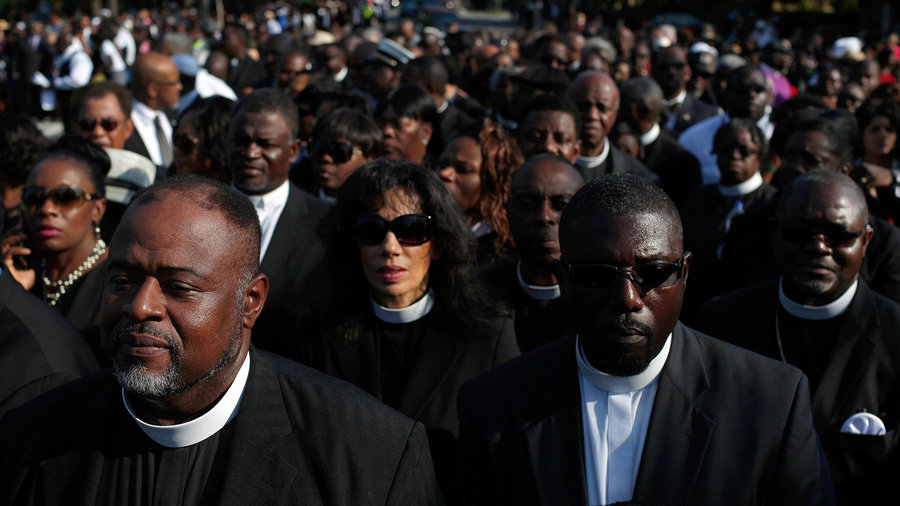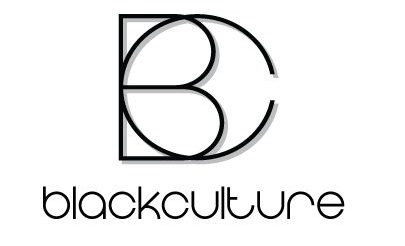
The Danger of Black Forgiveness
I’m increasingly disturbed at the immediate thirst of a vast portion of the white American public. Not from the fountain of youth or the pool water at the peak of the mountain of success. But by the thirst they shamelessly, day in and day out, command be quenched from the chimerical white gold-trimmed bottomless well of Black forgiveness.
On June 18, 2015 as I learned the names of Reverend Clementa Pinckney, Reverend Sharonda Coleman-Singleton, Reverend Depayne Middleton Doctor, Cynthia Hurd, Susie Jackson, Ethel Lance, Tywanza Sanders, Myra Thompson, and Reverend Daniel Simmons Sr., my heart sank deeper and deeper, as the loss of black excellence increased. The idea of parishioners being slain literally while interpreting the word of God paralyzed me.
As with most regular American news stories involving brown-skinned victims, within 24 hours of the domestic act of terrorism, the responsibility of respectability and prevention had been slapped onto the victims, and onus of immediate forgiveness upon the victims’ families. My heart cried as I listened to Felicia Sanders, mother of Tywanza Sanders, say “May God have mercy on you;” Reverend Anthony Thompson, husband of Myra Thompson, “I forgive you; the daughter of Ethel Sanders say, “I forgive you” four times during the hearing of the domestic terrorist (whose name doesn’t deserve recognition).
I wondered, what are the functions of this? I understand forgiveness is for the liberation of the victimized, and not the victimizer. But I must say, I have come to know forgiveness through a noticeably different lense than a large portion of the white American public.
Forgiveness is accepting the possibility, the loss of hope, that the past could have been any different. Forgiveness is not letting people who have taken from you, have authority over how you live life after you have been wronged. Often, but not always, forgiveness comes after an apology—usually from the victimizer—understanding their actions should never be repeated and were wrong, intentionally or unintentionally. This is an element of forgiveness the white American public seems, perhaps willfully, to never comprehend.
Following the January 2015 terrorist attack on French satirical magazine Charlie Hebdo, a publication outwardly proud of their antagonistic views towards the Muslim community, celebrities and public figures went out of their way to show solidarity with the bomb victims. Support was shown across Golden Globe award speeches, social media, and even “Je Suis Charlie” t-shirts—yet through none of these mediums were the victims’ families encouraged to forgive.
However, white America so subtly, yet urgently, demands the Black experience be quite the opposite. Immediate after experiencing racism, Black people are asked question like ‘What words do you have for [insert name of racist, cold-blooded murderer]?,’ ‘Why not follow the ideals of the Dr. King and stay peaceful?,‘ and perhaps the most repugnant, ‘Don’t #AllLivesMatter?’ All of these words come from the selfish, uniformed thirst of the white American public.
The forgiveness they seek is not for the common good, but for the safekeeping of fragile and aloof white feelings. It almost seems as if with each instance of Black specificity or solidarity, sentiments of white supremacy exponentially increase. When Black people adhere to any of the aforementioned cries of white Americans, we consciously sign the consent of murder certificate of our own brothers and sisters.
First, Black forgiveness comes with the acceptance of inferiority. In a country that has yet to apologize or provide reparations for 245 years of slavery, white Americans are consistently told their feelings are of paramount concern. When white skin is legislatively held unaccountable for wrongs, with each passing day they are reminded they are superior. What will happen when they realize white skin doesn’t immunize them from sin? In fear that revelation may be have negative consequences, Blacks have been conditioned to not challenge white feelings and instead put their emotions on the back burner, while ensuring white feelings are delicately preserved like we would a key to Heaven. Like many victims of abuse, we stow away the pain, not only for immediate survival, but so we have the mental capacity to fight the next racist fight, which historically we know is inevitable. But who knows who will survive the next time?
White America asks for forgiveness, when they mean silence, an acceptance of the status quo. If Black people stand in solidarity for humanity, a successful white American system rooted in Black worthlessness, may very well collapse. In an effort to preserve advantages provided to them free of charge at birth, yet dependent on anti-blackness, white America begs for mercy. They play confused, denounce protests, misinterpret Dr. King speeches, and try in every way to police Black emotion. Every pro-Black tweet, every Black celebrity shining light on racial injustices, every protest is another blow that could potentially discontinue white privilege, and that is an idea white America can’t bare to digest.
Lastly, Black forgiveness comes with white absolution. The guilt a human feels when willfully being inhumane, is deep and gut-wrenching. Wanting to not be inconvenienced or rise above globally encouraged white mediocrity; the survival tactic of white American denial has become quite fanciful. In an attempt to rid them of responsibility, accountability, and guilt of undeserved privileges provided by their potentially racist ancestry, white America only needs those three words from ANY Black. Heart felt or empty words in their intention, is of negligible concern. Publicly and/or immediately communicating, “I forgive you” to a white supremacist murderer or brutally irresponsible officer of law enforcement, is essentially a green light for the conversation of racism to conclude. And with the conclusion of any talk of racism, white America is allowed to believe they can close the book to another chapter of American racism, another isolated incident. All isolated incidents mean no existence of a negative trend that should be resolved. And with the idea of each racist act being an isolated incident, white Americans can act shocked and disgusted all over when the next racist chapter of America begins, but remain complicit, and the racist cycle continues.
So as we begin the first full week with the Confederate Flag not reigning over statehouse grounds in South Carolina, be mindful of your self-worth, because our fight has just begun. I’m not discouraging Black forgiveness, I am encouraging Black self-love and self-care before you consider anybody else. Your feelings, they matter. Your words they matter. Your resilience matters. Your Black life matters.



